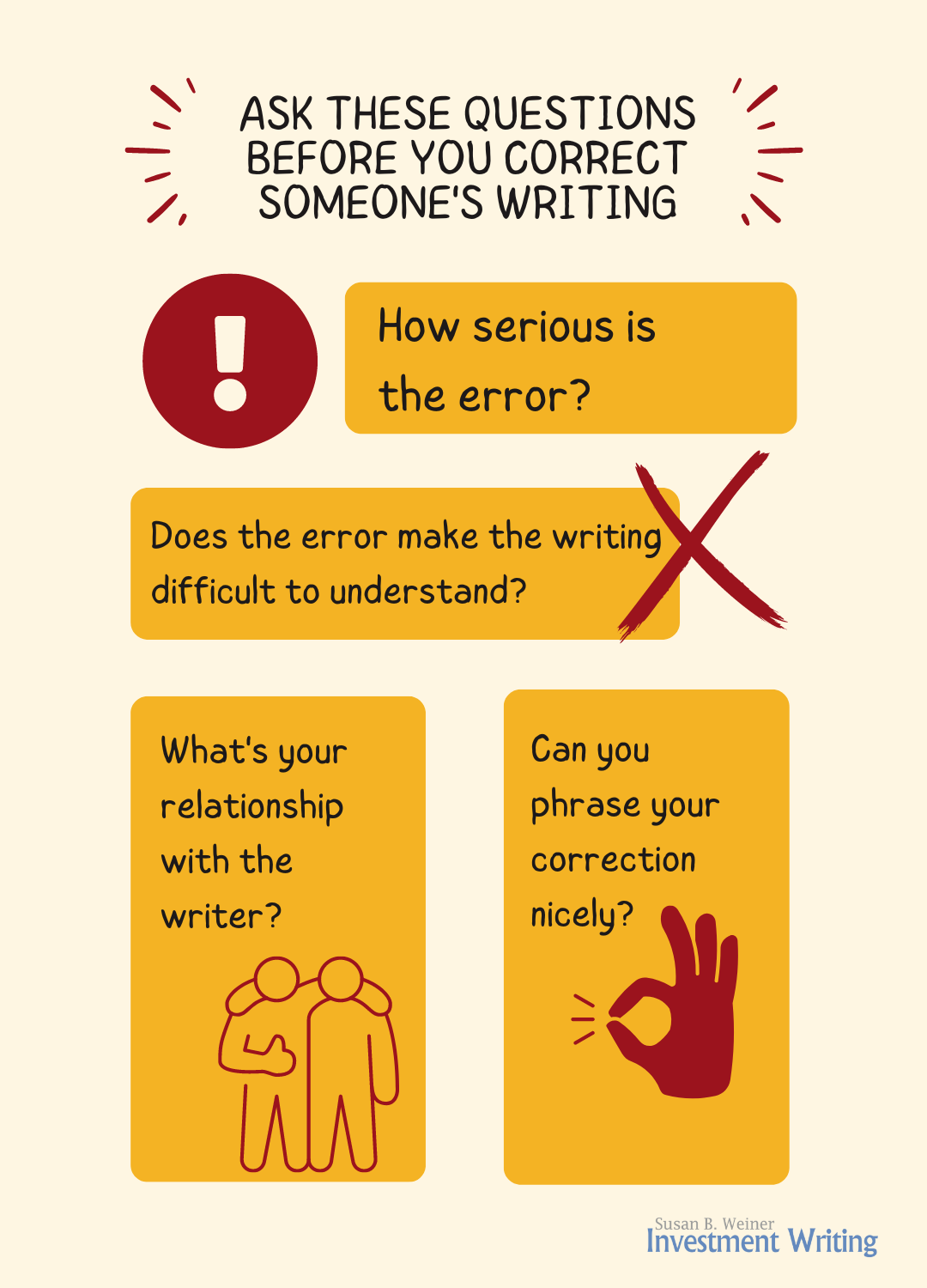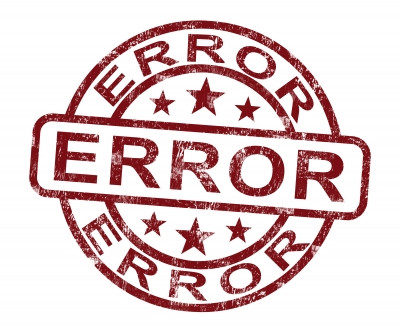Should you correct other people’s writing mistakes?
The quality of your writing affects what other people think of you. That’s a good reason to polish your writing. But what if you see errors in other people’s writing? Should you tell them if you’re not working as an editor? It depends. I pose four questions that can help you decide whether to act.

1. How serious is the error?
Some errors are more important than others. If a writer repeatedly refers to “portfolio mangers” instead of “portfolio managers,” that’s embarrassing. It also suggests a sloppiness that reflects poorly on the individual and whatever organization is publishing the piece in which the error appears.
2. Does the error make the writing difficult to understand?
Some errors make it hard for readers to grasp the writer’s message. I dislike this kind of error more than one that’s wrong, but can be glossed over by the reader.
For example, when a writer pens a garbled introduction followed by paragraphs that lack strong topic sentences, you know that readers will struggle. This kind of error is worthy of correction.
On the other hand, some things are widely viewed as errors are open to debate and don’t—in isolation—make a piece much harder to understand.
Take “irregardless,” one of the many “mistakes” that Shea Ammon tackles in Bad English: A History of Linguistic Aggravation. “One may not like this word, but that is far cry from it not being a word,” says Ammon.
If I saw one instance of “irregardless” in an otherwise well written piece, I wouldn’t tell the author unless I was wearing my editor’s hat. After all, most readers would grasp the meaning, even though the word has an extra syllable and, as Ammon concedes, “It is admittedly difficult to offer much by way of defense to the word irregardless.”
3. What’s your relationship with the writer?
Tread carefully if you lack a close relationship with the writer, particularly if they’re senior to you in your organization. A correction can sour your relationship. It’s not just senior folks whom you need to worry about. Many people are sensitive to correction.
4. Can you phrase your correction nicely?
Be nice when you make corrections. A classic suggestion is to criticize the writing, not the person. Nobody enjoys criticism, even when they know it’s on target.
I sometimes tell complete strangers when I spot typos in their LinkedIn profiles. I write something like, “I noticed a tiny typo in your LinkedIn profile. Your title is listed as ‘investment consutlant’ with the ‘l’ and the ‘t’ reversed. You might want to fix that.” I hope that they realize I’m contacting them because I want to help.
Another reason to phrase your corrections nicely: We all make mistakes. I know I do. I’ve featured many of my own mistakes on Mistake Monday on the Investment Writing Facebook page, where I challenge readers to identify mistakes in items that I post on Monday mornings.
By the way, if you spot errors in my work, please tell me. I’ll be grateful.
If you’re working in an editorial role
Correct as much as you can, if you’re working in an editorial role. However, you may not be able to insist on the implementation of all of your corrections. Consider my four questions as you decide how to respond to the writer’s resistance to your changes.
Image courtesy of Stuart Miles / FreeDigitalPhotos.net





